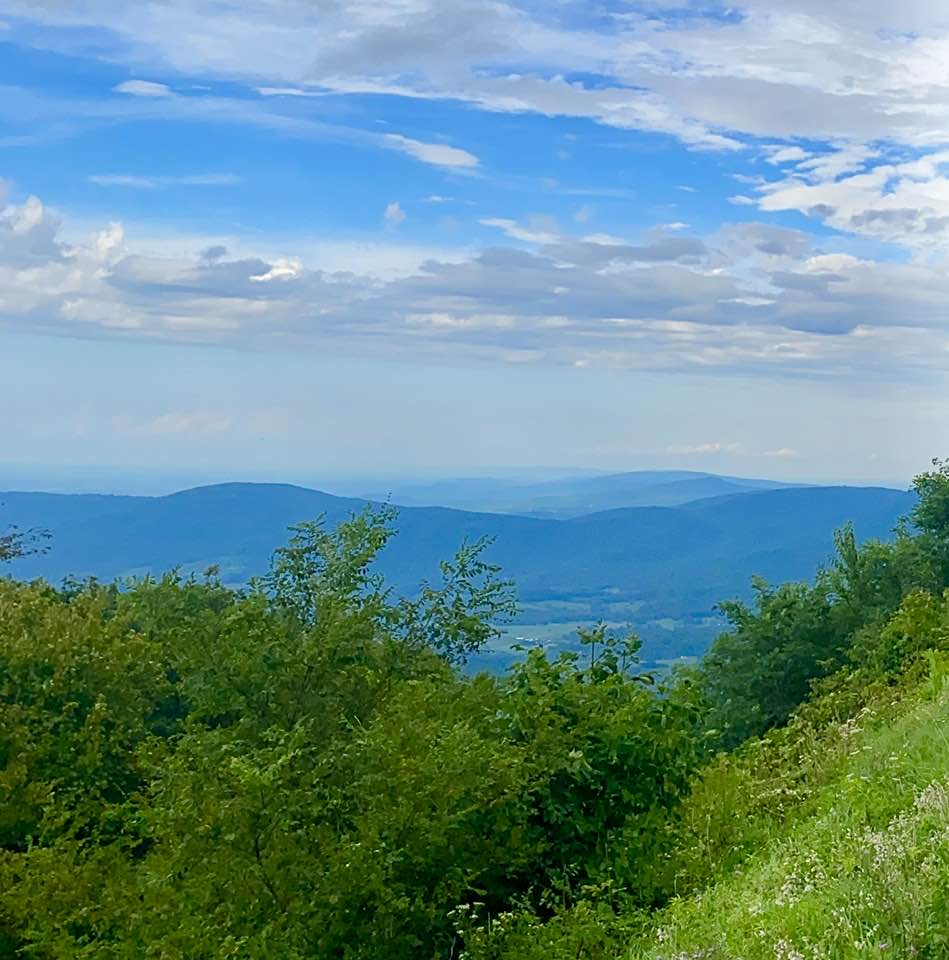
A view of Shenandoah Valley from the Hogback Overlook on Skyline Drive in Shenandoah National Park: Glynn Wilson
Staff Report –
SHENANDOAH, Va. – The federal government’s management of the National Park Service in Shenandoah National Park in Luray, Virginia has proposed to completely privatize all commercial operations in the park, including the campgrounds, without notifying the public or allowing public comments.
The privatization plan is buried down in a press release about the new concessionaire contract, which is what the National Park Service calls private contractors.
If you recall the documentary series produced by PBS film maker Ken Burns, who called the national parks “America’s Best Idea,” you will remember how private “profiteers” had to be removed from these special places in nature for the federal government to take them over for preservation and conservation. The mandate of the park service was also to allow affordable access to all members of the American public without regard to income.
This plan is a continuation of the commercialization and privatization of the parks we have been writing about since 2016, the centennial year of the National Park Service. Prices have been going up at parks all across the country, in part because of this commercialization and privatization. This would seem to go against the mission to allow public access to these special places without regard to income.
Search for National Park Service+privatization
The announcement for Shenandoah offers a new 15-year “concession contract opportunity to operate lodging, food and beverage sales, retail, grocery, camper services (firewood, showers, and laundry), automobile services (fuel), stable operations and (all FOUR CAMPGROUNDS) in the park.”
“This includes all commercial operations at Big Meadows, Skyland, Elkwallow, Lewis Mountain and Loft Mountain developed areas,” the announcement says. The new contract is expected to begin Jan. 1, 2026.
The deadline for proposals from private companies to take over the management of the park is Thursday, Nov. 7, 2024.
We learned of this proposal from a park ranger when camping in the park on Labor Day weekend. He said private companies have already toured the park and campgrounds in a “site visit to provide a concession operation overview and facilities tour to interested operators,” according to the release. Operators were to register for the site visit in advance, by 4 p.m. Eastern Time on Fri., Aug. 9, 2024.
This proposal has not been publicized in any press outlet that could be found online. Here is the link to the release:
The park ranger said that once this plan goes into effect, the only place the public will see rangers with the iconic broad-brimmed “flat hat” that has become a famous American icon and a symbol of preservation all across the world, will be at the park entrance stations, where the public can pay to get in the park and the teller on duty hands them a pass and a map of the park.
These positions are not even considered to be park rangers by the interpretive rangers who typically great visitors and conduct ranger programs in the park to explain the history of the park and the mission of the park service. The park ranger is a special new class of professional created only in America, yet it has inspired countries all over the world to create national parks administered by park rangers.
No one could be reached at Shenandoah’s park headquarters in Luray, Virginia on Wednesday morning on deadline. The contract does not address management of the visitor centers at Dickey Ridge and Big Meadows. Will interpretive rangers still be there to great park visitors? Will they still conduct ranger programs in the park?
Also no explanation was provided for why the park management felt this move was in the best interest of park visitors and the American public.
Further down on the National Park Service website, there are a few more details listed in a release of a prospectus to solicit proposals for the (contract) award: “a 15-year concessions contract (No. CC-SHEN001-26) to provide lodging, food and beverage, retail, campgrounds, horseback riding, and other services at Shenandoah National Park. All services offered by the Concessioner will operate on a seasonal basis. The Concessioner will offer a total of 285 lodging units at Skyland Resort, Big Meadows Lodge, and Lewis Mountain. The Concessioner will operate food outlets at Big Meadows Lodge, Skyland Resort, Big Meadows Wayside, Elkwallow Wayside, and Loft Mountain Wayside. The Concessioner will offer retail sales at the lodging and wayside locations as well.”
These services had already been privatized, and a company called Delaware North had the contract, as it does in other parks around the country including Yellowstone and the Grand Canyon. What is new is the plan to privatize the campgrounds in Shenandoah.
“The Concessioner will operate four campgrounds: Mathews Arm, Big Meadows, Lewis Mountain, and Loft Mountain. At three of these campgrounds (Big Meadows, Lewis Mountain, and Loft Mountain), the Concessioner will also operate camp stores, laundry, and showers. The Concessioner will offer automotive services (fuel) at Big Meadows Wayside. Finally, the Concessioner will offer horseback riding at the Skyland Stables, which has 16 stalls and 11 acres of paddock. The effective date of the next Concession Contract is expected to be January 1, 2026.”
The contract does call for the private contractor to make improvements to the park, including adding electric hookups to camp sites in Mathews Arm. There’s no mention of adding a shower house, which does not exist in that campground. It was the first built and has never had a shower facility.
Prices have already been going up in recent months. The campsite fee was just $15 a night in Mathews Arm, Lewis Mountain and Loft Mountain, and $20 a night in Big Meadows. It just doubled to $30 a night, going up from $7.50 a night with the Senior Lifetime “America the Beautiful” Pass to $15 a night.
What the public may also not understand is that in most national parks now, online reservations are required on the website Recreation.gov. While this has a dot gov domain name, this is not run by a government agency. It has been farmed out to a private company.
Park Background
As background, the park service says Shenandoah National Park was established December 26, 1935, and totals 197,411 acres located about 75 miles from Washington D.C. One of the Park’s most famous features, Skyline Drive, constructed in the 1930s by the Civilian Conservation Corps, offers drivers 105 miles of scenic overlooks, trailheads, picnic areas, and campgrounds between Front Royal in the north and Rockfish Gap in the south.
Another way to traverse the length of Shenandoah is by hiking the hundred or so miles of the Appalachian Trail that run across the Park. In addition to Front Royal and Rockfish Gap, the Park is accessible from Luray and Sperryville by way of the Thornton Gap Entrance Station, as well as from Elkton and Stanardsville via Swift Run Gap Entrance Station.
For additional information, visit the park’s website here.
Economic Impact
According to another press release on the park’s website, a report showed that 1.5 million visitors to Shenandoah in 2023 spent $114 million in communities near the park. That spending supported 1,351 jobs in the local area and had a cumulative benefit to the local economy of $156 million.
“I’m so proud that our parks and the stories we tell make a lasting impact on more than 300 million visitors a year,” said National Park Service Director Chuck Sams. “And I’m just as proud to see those visitors making positive impacts of their own, by supporting local economies and jobs in every state in the country.”
“Visitors to Shenandoah National Park come seeking opportunities to learn, recreate, relax, and to build community,” said Acting Superintendent Cynthia Sirk-Fear. “We’re proud that Shenandoah contributes so much every year to the local economies of our communities. These are our friends and neighbors. Shenandoah strives to be a good neighbor, and to provide an inspirational experience to visitors, for years to come.”
The report found that 325.5 million visitors spent $26.4 billion in communities near national parks, spending that supported 415,400 jobs, provided $19.4 billion in labor income and $55.6 in economic output to the U.S. economy. The lodging sector had the highest direct contributions with $9.9 billion in economic output and 89,200 jobs. The restaurants received the next greatest direct contributions with $5.2 billion in economic output and 68,600 jobs.
Project 2025
In addition to this privatization proposal, if former President Donald Trump is elected president in November and tries to implement Project 2025, the entire mission of the National Park Service and the Interior Department would be in jeopardy. That plans calls for rescinding federal protections for all public land, to be sold to the highest bidder for commercial and industrial purposes, including timber harvesting, mining and even fracking for gas on public land, which already happens in some national forests. The National Forest Service is a separate federal agency under the Department of Agriculture.
Chapter 16 of Project 2025 (p. 517-538), calls for abandoning all leasing of federal lands, including all national forests and parks.
“Conservative lawmakers want to take away our public lands and sell them to private interests, without any interest in conservation or regulation,” according to one commenter on Reddit.
More Photos
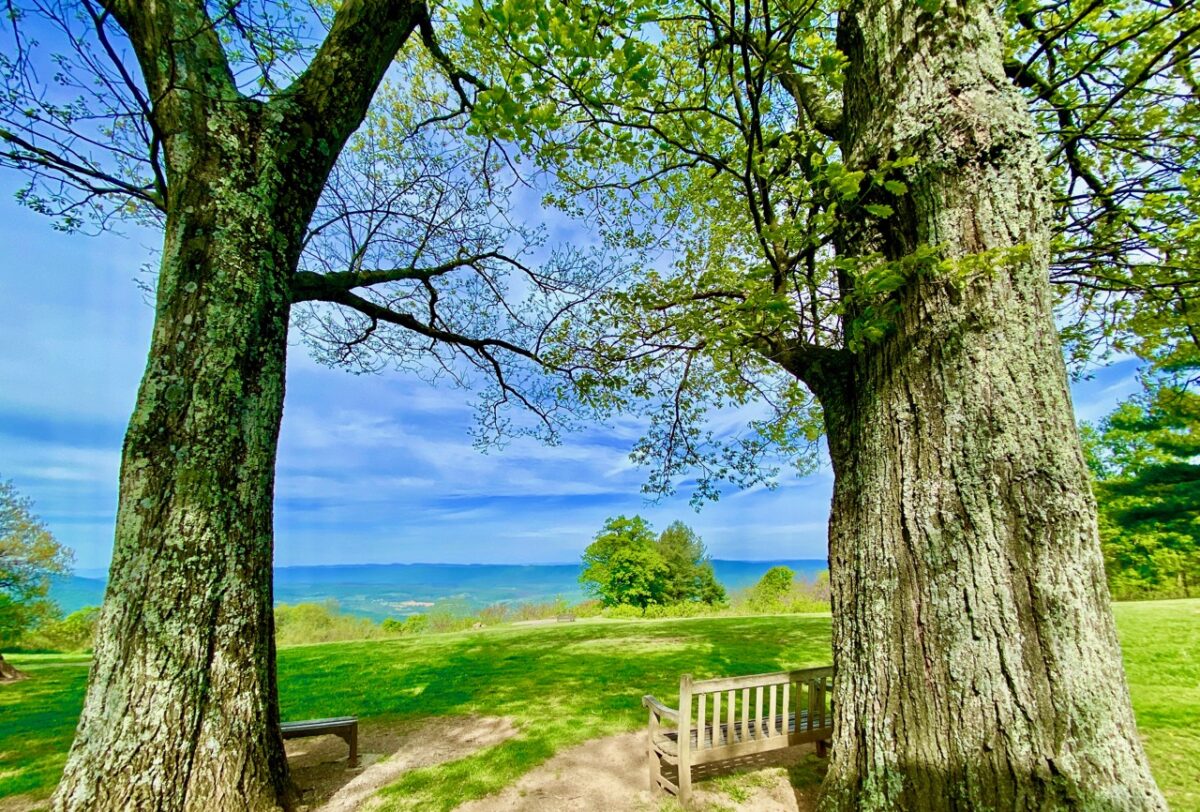
A spring view from behind the Dickey Ridge Visitors Center along Skyline Drive in Shenandoah National Park, Va.: Glynn Wilson
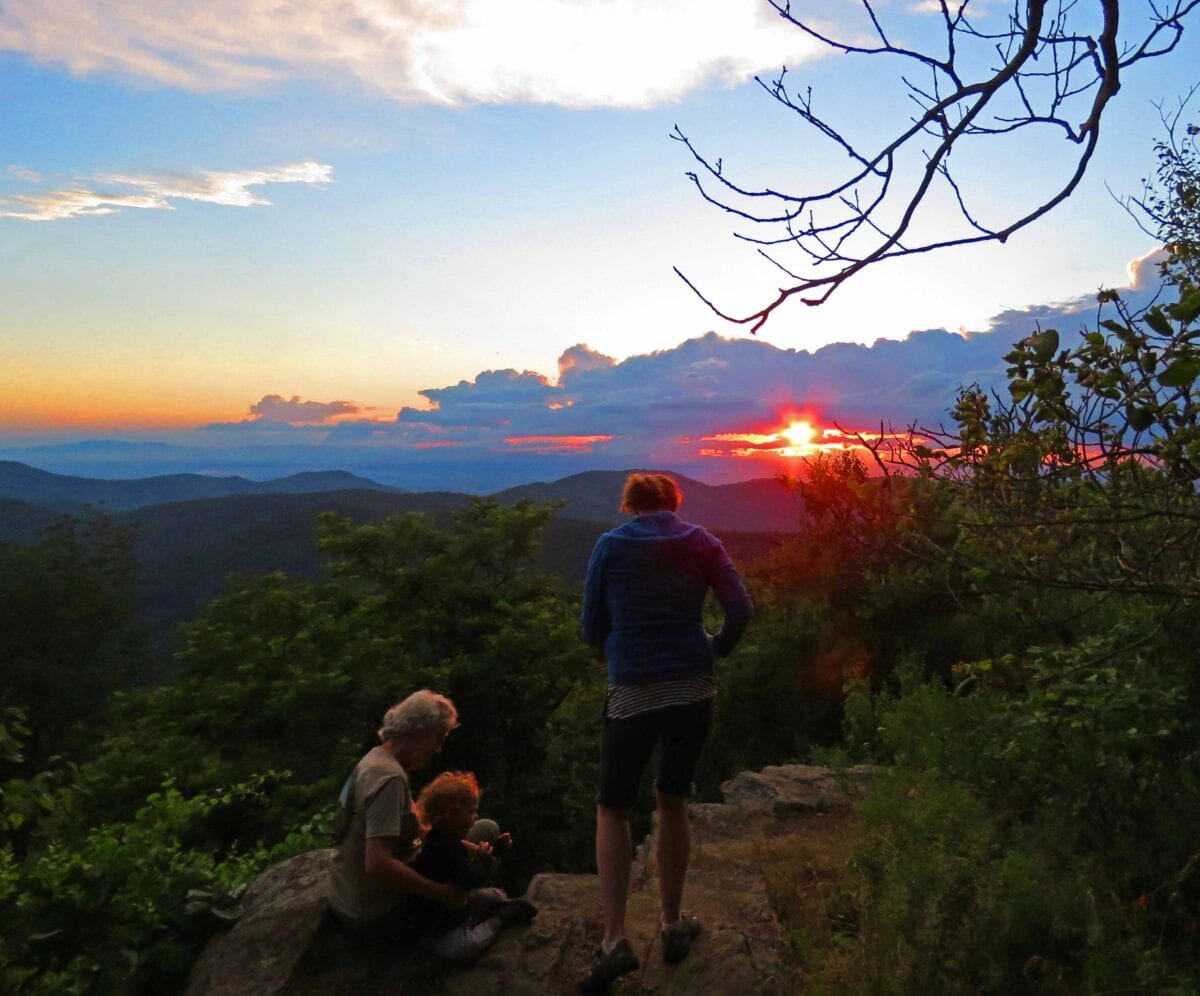
Visitors to Shenandoah National Park enjoy a summer sunset view along the Appalachian Trail by Loft Mountain Campground, Sunday, July 12, 2020: Glynn Wilson
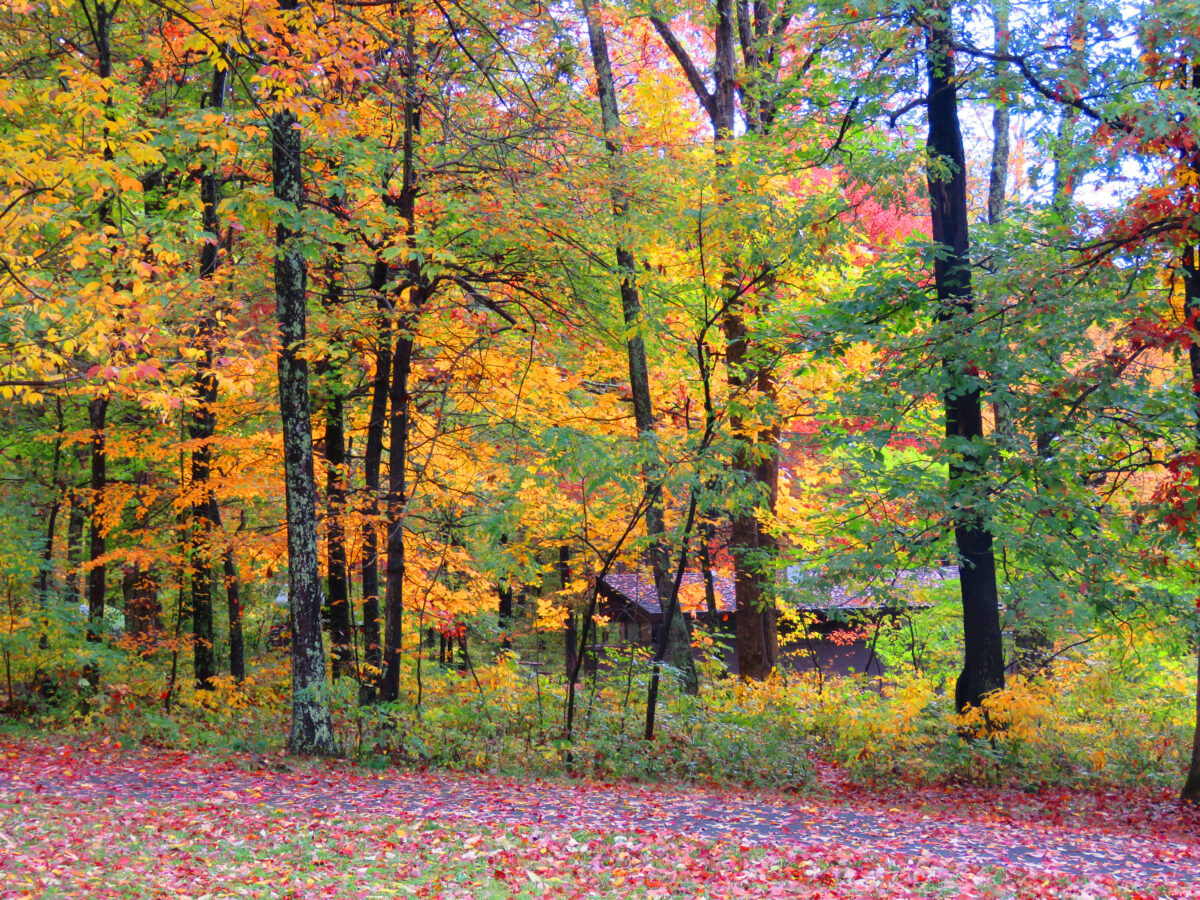
A cabin surrounded by peak fall color in Shenandoah National Park in the group area of Mathews Arm Campground, Autumn 2020: Glynn Wilson
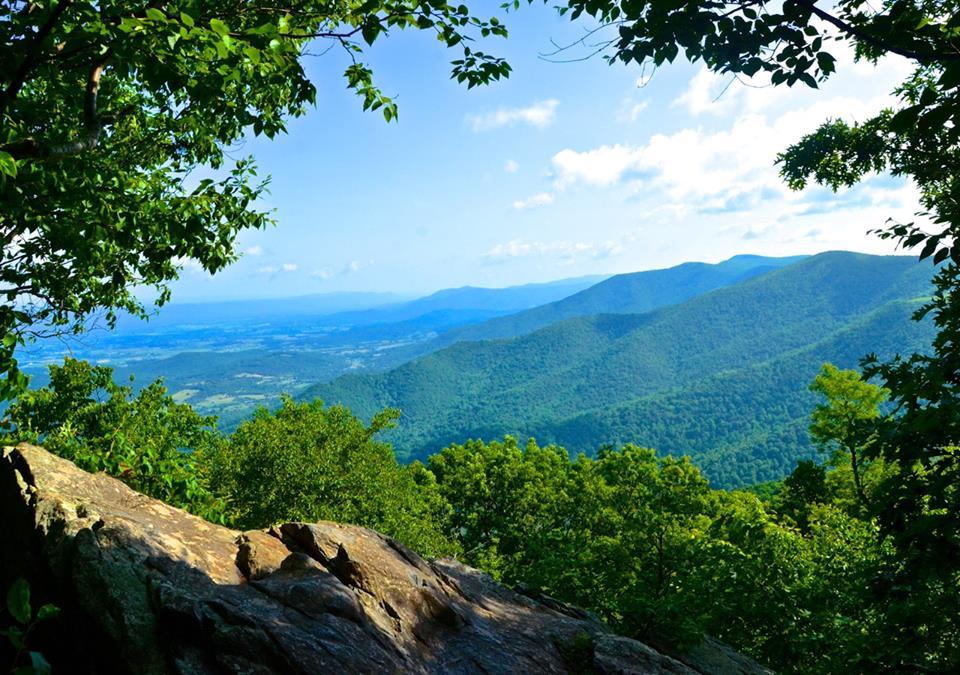
A view of the mountains from the Appalachian Trail by the Big Meadows Campground in Shenandoah National Park: Glynn Wilson
___
If you support truth in reporting with no paywall, and fearless writing with no popup ads or sponsored content, consider making a contribution today with GoFundMe or Patreon or PayPal.
Before you continue, I’d like to ask if you could support our independent journalism as we head into one of the most critical news periods of our time in 2024.
The New American Journal is deeply dedicated to uncovering the escalating threats to our democracy and holding those in power accountable. With a turbulent presidential race and the possibility of an even more extreme Trump presidency on the horizon, the need for independent, credible journalism that emphasizes the importance of the upcoming election for our nation and planet has never been greater.
However, a small group of billionaire owners control a significant portion of the information that reaches the public. We are different. We don’t have a billionaire owner or shareholders. Our journalism is created to serve the public interest, not to generate profit. Unlike much of the U.S. media, which often falls into the trap of false equivalence in the name of neutrality, we strive to highlight the lies of powerful individuals and institutions, showing how misinformation and demagoguery can harm democracy.
Our journalists provide context, investigate, and bring to light the critical stories of our time, from election integrity threats to the worsening climate crisis and complex international conflicts. As a news organization with a strong voice, we offer a unique, outsider perspective that is often missing in American media.
Thanks to our unique reader-supported model, you can access the New American journal without encountering a paywall. This is possible because of readers like you. Your support keeps us independent, free from external influences, and accessible to everyone, regardless of their ability to pay for news.
Please help if you can.
American journalists need your help more than ever as forces amass against the free press and democracy itself. We must not let the crypto-fascists and the AI bots take over.
See the latest GoFundMe campaign here or click on this image.
Don't forget to listen to the new song and video.
Just because we are not featured on cable TV news talk shows, or TikTok videos, does not mean we are not getting out there in search engines and social media sites. We consistently get over a million hits a month.
Click to Advertise Here


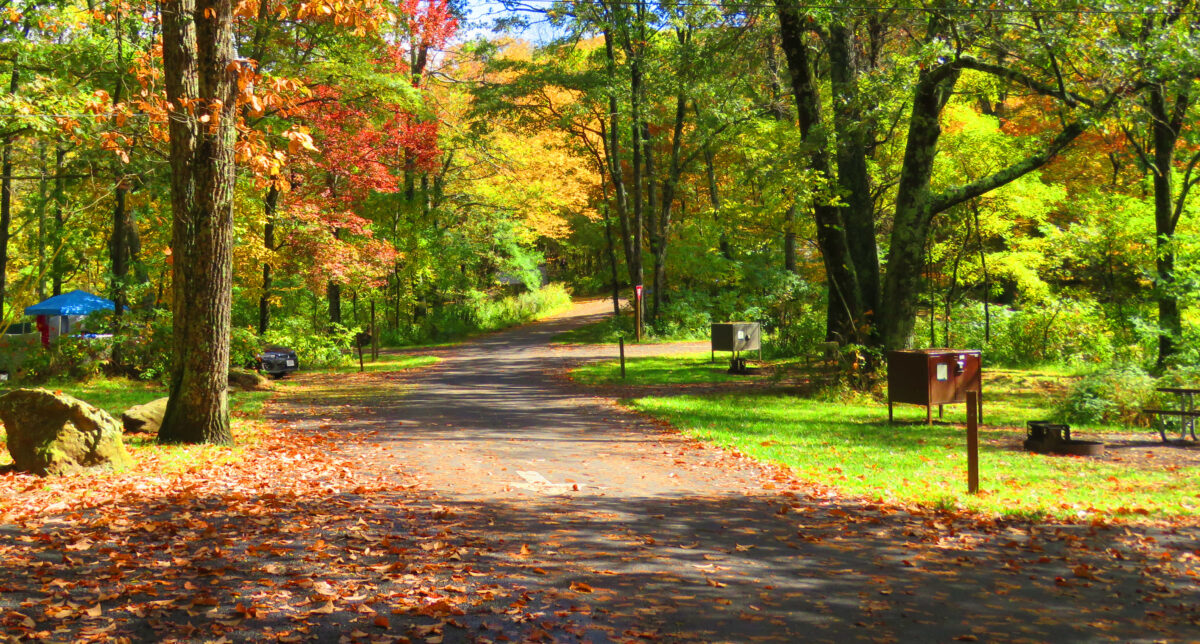


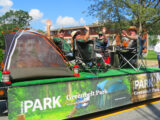

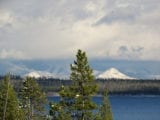
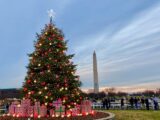
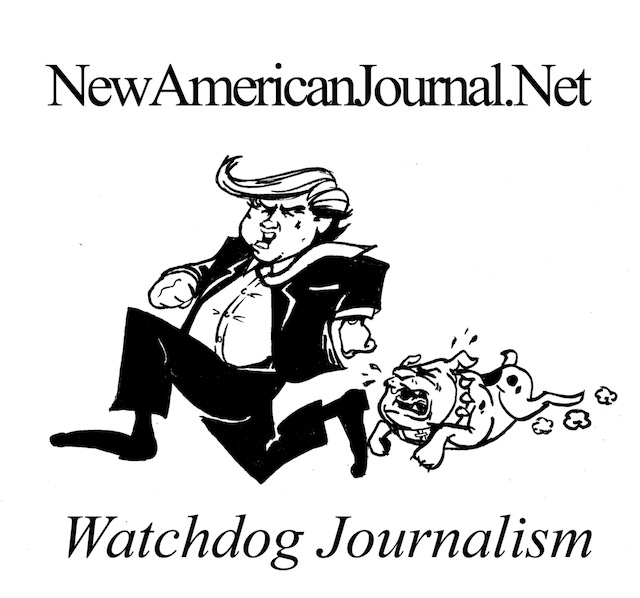







Great article. HOW DO WE STOP THIS FROM HAPPENING.